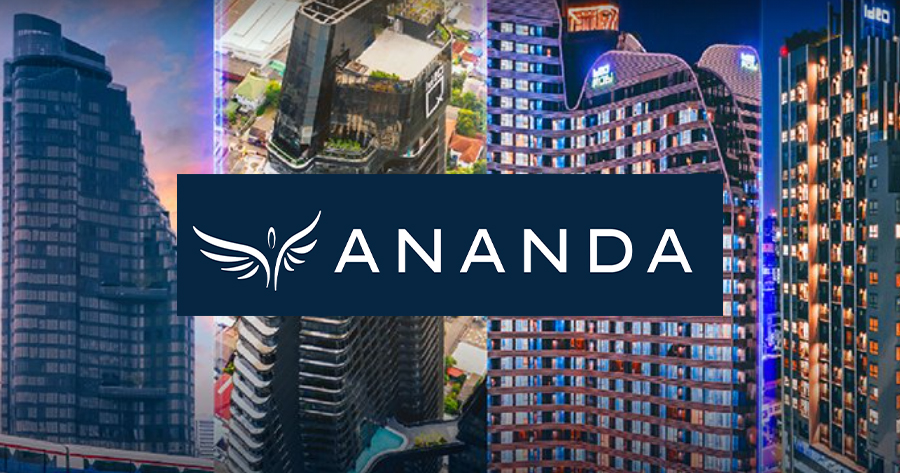TRIS Rating affirms the company rating on Ananda Development Public Company Limited (SET: ANAN) and the ratings on ANAN’s existing senior unsecured debentures at BBB-, with a stable rating outlook while affirming the ratings on ANAN’s subordinated capital debentures (hybrid debentures) at BB.
At the same time, Tris Rating also affirms the rating of BBB- to ANAN’s proposed issue of up to THB5 billion senior unsecured debentures rated by TRIS Rating on 10 June 2021. The proceeds from the new debentures will be used to refinance the senior unsecured debentures maturing in 2022.
The ratings reflect ANAN’s acceptable market position in the condominium segment and the high income contribution from its joint venture (JV) projects. The ratings also take into consideration ANAN’s high financial leverage and concerns over the drawn-out Coronavirus Disease 2019 (COVID-19) pandemic, which is likely to continue to pressure the demand for residential properties and the profitability of developers for an extended period.
ANAN’s net presales during the first nine months of 2021 declined by 63% year-on-year (y-o-y) to THB2.1 billion. ANAN reported total operating revenue of THB2.7 billion, a 15% y-o-y drop, in the first nine months of 2021. Tris Rating views that ANAN’s operating results will continue to be under pressure during the remainder of 2021 through the first half of 2022 for which the rating company believes the demand in the condominium segment from both local and foreign buyers will remain inert.
Tris Rating views that the revocation of building permit for the Ashton Asoke condominium project has no immediate impact on ANAN’s credit profile as the appeal process will likely take years to reach the final ruling. The outcome of the final ruling is also uncertain. Tris Rating expects ANAN’s total operating revenue to revive to THB5.5-THB6.5 billion per annum during 2022-2023. ANAN’s earnings before interest, taxes, depreciation, and amortization (EBITDA) is expected to be only THB1 billion in 2021 since the company has no condominium projects completed and transferred this year. However, Tris Rating expects ANAN’s EBITDA to recover to around THB1.5-THB2 billion per annum during 2022-2023.
ANAN’s backlog as of September 2021 was worth THB12.8 billion, comprising THB12 billion backlog under JVs and THB0.8 billion backlog of its own projects. Tris Rating expects ANAN to deliver backlog worth THB1.9 billion during the fourth quarter of 2021, THB6.2 billion in 2022, and THB4.7 billion in 2023. As its backlog depletes overtime, ANAN’s revenue and earnings will depend largely on its ability to sell its remaining completed units. At the end of September 2021, ANAN had remaining finished condominium units worth THB24.5 billion.
ANAN reported a net shared profit from its investments in JVs of only THB0.2 billion during the first nine months of 2021. Tris Rating expects ANAN’s shared profit from investments in JVs to be affected by the loss from investments in construction-in-progress condominium projects and operations in newly completed serviced apartments. All serviced apartments are scheduled to start operation amid a shaky recovery in the tourism industry. Tris Rating projects a net shared profit from its investments in JVs to stay at THB0.1 billion in 2022 and THB1 billion in 2023.
Tris Rating expects ANAN’s financial leverage to remain high over the next three years as the company continues to expand its residential project portfolio. ANAN succeeded its fund raising from existing shareholders by right offering worth THB1.3 billion in November 2021. However, Tris Rating projects ANAN’s debt to capitalization ratio to stay in the 65%-68% range over the forecast period. Its funds from operations (FFO) to total debt ratio may stay below 2% during 2021-2022 but should recover to around 4% in 2023.
Tris Rating assesses that ANAN’s liquidity will be tight but should be manageable over the next 12 months. ANAN’s sources of funds consisted of THB5.9 billion in cash as of September 2021 plus undrawn committed credit facilities from banks of THB1.5 billion as of mid-December 2021. FFO is forecast to be THB0.3 billion in 2022. In addition, ANAN had unencumbered land banks at book value of THB6.1 billion, which can be pledged as collaterals for new loans (if needed). Debts maturing over the next 12 months will amount to THB16 billion, comprising THB8.1 billion debentures, THB7.1 billion short-term promissory notes (P/Ns), and THB0.8 billion long-term loans. ANAN usually refinances maturing debentures with new debenture issuance. Most of the short-term P/Ns are used as bridging loans for land purchases. ANAN plans to convert them to long-term project loans thereafter. Project loans are expected to be repaid with cash from the transfers of residential units. In addition, ANAN plans to replace the THB1 billion hybrid debentures, which the company has a call option to redeem at the beginning of 2022, by new equity injection in late 2021.
As of September 2021, ANAN had total debt of THB30.3 billion (per priority debt consideration), including priority debt of THB6.7 billion. ANAN’s priority debt included secured debt at the parent company and total debt of its operating subsidiaries. As the ratio of its priority debt to total debt was 22%, below the threshold of 50% according to TRIS Ratings Issue Rating Criteria, Tris Rating views that ANAN’s unsecured creditors are not significantly disadvantaged with respect to claims against the company’s assets.





